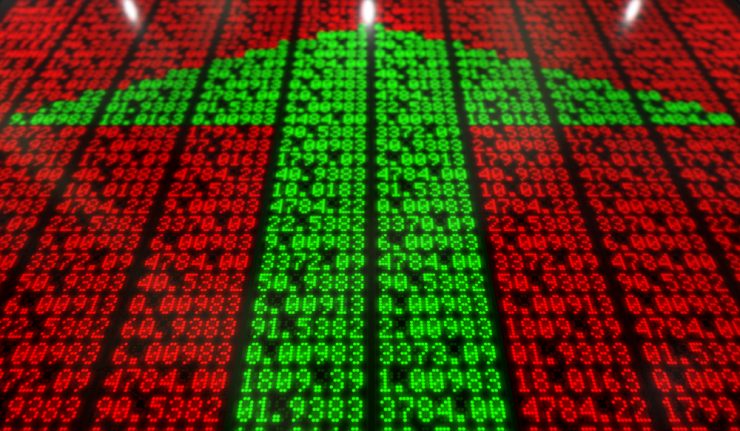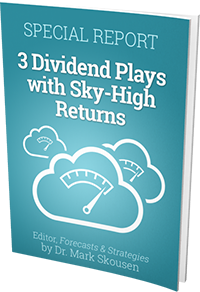This write-up will explain how index funds are distinguished from mutual funds and identify their key differences. The article also will describe how exchange-traded funds (ETFs), index mutual funds and actively managed funds can be put to best use.
Index Fund vs. Mutual Fund: What is an Index Fund?
Following years of academic discussion regarding stock market portfolios, on Aug. 31, 1976, John Bogle, founder of The Vanguard Group, created the first publicly available index fund called Vanguard 500 Index (VFINX). While initially dismissed by the investment community, the simple premise of index funds has brought in billions of investment dollars since their conception. Index funds own more than 17% of stocks listed in the United States.
Today, the Vanguard Group’s Vanguard 500 Index (VFINX) is worth nearly $805 billion. In comparison, the Vanguard Total Stock Market Index Fund, worth around $1.3 trillion, is among the largest index funds by net assets under management. Clearly, the premise John Bogle introduced is widely accepted and used by investors.
What is this simple premise? Bogle believed that buying and holding a broad stock index, essentially tracking overall stock market return, would produce higher returns than picking stocks. This premise has been overwhelmingly supported by historical evidence, with market returns outperforming every actively managed mutual fund in the long term since stock market data was extensively tracked beginning in the 1960s.
Keeping true to this original premise, index funds today hold a portfolio of securities that track a certain index of funds. An example of this would be pooled stocks of the S&P 500 or a collection of securities within the Russell 2000.
These are indexes made up respectively of the top 500 and top 2,000 U.S. companies by market capitalization. Both of these approaches invest broadly in the companies that make up these indexes. Thus, overall market growth driven by increased productivity and population gains can be tracked by an index fund.
Index Fund vs Mutual Fund: What is a Mutual Fund?
Modern mutual funds first came into being in 1924 with the creation of the MFS Massachusetts Investors’ Trust in Boston (MITTX), a mutual fund that still exists 90 years later. Similar to index funds, mutual funds endured recessions and criticism from the investment community to balloon to enormous proportions.
A mutual fund is an investment vehicle which pools money from investors. This money is held by a Securities and Exchange Commission (SEC)-registered asset management company, and managed by an SEC-registered investment advisor. The pooled money is invested by the manager into a variety of securities, including but not limited to: stocks, bonds and short-term money-market instruments.
When an investor buys into a mutual fund, he will usually identify the investment objective of the manager and decide whether the investment style is a fit. If it does, then a careful consideration of fees and expenses is advisable before purchasing. Once shares are purchased, then the investor is entitled to a proportion of the portfolio returns in relation to his proportion of shares of the portfolio, minus fees and expenses.
There are two distinct categories of mutual funds that encapsulate the various investing styles of their managers. These categories are passively managed funds and actively managed funds. Passively managed funds pick stocks in a way that is designed to match the performance of a particular stock market index.
The result is such passive funds tend to hold their stocks for longer time horizons than actively managed mutual funds. In contrast, actively managed funds are authorized to trade stocks regularly, seeking better market opportunities than just matching a stock market index, and seeking higher returns.
Overall, investing in mutual funds provides several advantages for investors, namely: professional management, diversification, affordability, liquidity, economies of scale, and transparency and oversight. However, drawbacks include fees and expenses even when the stock market goes down, price uncertainty during the trading day with such instruments and lack of control.
Click here for more information about mutual funds.
Index Fund vs Mutual Fund: What are their Differences?
As mentioned above, a mutual fund may or may not be an index fund. In fact, there are many mutual funds that are also simultaneously index funds, owning certain companies that the manager believes are representative of a particular index.
Hence, a passively managed mutual fund has the same objective as an index fund to track overall stock market returns and growth. These funds are often associated with reduced fees and expenses for investors than actively managed mutual funds.
For actively managed mutual funds, lower fees and expenses are not the case. An actively managed fund seeks to beat market returns through the stock picking expertise of the investment manager. The manager can trade securities in the portfolio daily as long as the purchases and sales align with the investment objectives outlined by the fund. This could be considered as a “buy and sell” portfolio management strategy, directly contradicting an index fund’s “buy and hold” premise. Using this investment approach is where mutual funds differ from index funds.
An index fund’s objective is to invest in components of a specific index to match the average returns of that index. This strategy is a “buy-and-hold” approach, where investors can expect predictable returns in relation to the overall market returns. Since this approach is passive, and requires little oversight, expenses and fees are often minimal.
On the other hand, actively managed mutual funds seek to beat the average returns of an index or stock market rather than match them. To do this, actively managed mutual funds often buy and sell stocks frequently, and invest in components of an index that the manager of the fund believes has the highest potential for returns and growth. For this increased oversight, the fund charges higher expenses and fees to investors.
ETF vs. Index Mutual Fund: Which Fits Your Investment Style Best?
To own a share of an index fund, an investor must choose to invest in an exchange-traded fund (ETF) or a mutual fund. An ETF trades in real time with very low expenses and fees. A mutual fund trades at end-of-day Net Asset Value with generally higher expenses and fees. These investment vehicles provide the necessary diversification and transparency needed for individual investors to invest in broad indexes.
What factors may affect an investor’s decision when deciding to invest in an ETF versus an index mutual fund? First, the companies included in the portfolio of the index fund are important to consider. Investors may feel that a mutual fund has chosen a better representative sample of companies to track an index than is available through ETFs, and thus invest in this particular investment vehicle. Increasingly, less broad index funds have been introduced into the market, tracking certain sectors, or for example, an index of mid-capitalization companies (2-10 billion market value). When both ETFs and Index Mutual Funds offer funds with similar investment objectives, how they go about achieving this investment objective through their stock selection is a primary consideration for investors.
Second, the fees and expenses accepted when investing into a fund are another primary consideration. Generally, ETFs have lower expenses and fees than Index Mutual Funds.
Passive Index funds generally have an expense ratio of 0.73%, meaning they expense 0.73% of your investment to run the fund, while the average ETF expense ratio was about 0.23% per Morningstar. This 0.5% difference can impact an investment; for example, if an average Index Mutual Fund provides returns that are 0.25% higher than returns of an average ETF, than an investor who had invested in an average mutual fund would still have 0.25% less than if he had invested in an average ETF, since 0.5% more is taken away for fees and expenses.
Third, the issue of real-time trading versus trading at Net Asset Value (NAV) can affect investors. ETFs trade in real time, where investors can see the price of their shares and buy and sell freely, as long as the market is open. Index Mutual Funds trade at their NAV, found by taking total fund assets minus fund liabilities, then dividing by total number of shares outstanding to find the NAV of each share. The NAV of each share is calculated after market close. Thus, shares of Index Mutual Funds can only be bought and sold to the asset manager after the market’s close.
Upon considering these factors, the decision of ETF versus an Index Mutual Fund can be broken down into several components by the investor. If a low expense ratio is important to you, then it would be wise to choose an ETF. While if you believe the blend of companies offered exclusively through an Index Mutual Fund matches your investment style best, the Index Mutual Fund would be your likely choice.
Index Fund vs. Actively Managed Mutual Fund: Which Fits Your Investment Style Best?
There are many index-based mutual funds that track specific indexes with lower expenses and long time horizons. For those who feel that an investment style aligns with predictable returns and lower expenses, then an index fund is your best option. Tracking the market in this manner will give greater stability dealing with market upturns and downturns. When choosing between an index ETF and index-based mutual fund, there are several important factors to consider; namely: stock selection, fees and expenses, and real-time trading.
In contrast with index funds, you may be seeking to beat market returns, and are willing to accept the higher risk of unpredictable returns that comes with investing in an actively managed fund. If you feel the higher returns justify the higher risk and higher expenses, then an actively managed fund would be your best option.
Generally, in bull markets, when share prices are rising, investors are more willing to accept risk to capitalize on the rising share prices. However, in bear markets, when share prices are either declining or plateauing, the higher expenses will continue to diminish your investment despite negative or null returns.
Alex Liebetrau is an editorial intern who writes for www.stockinvestor.com and www.dividendinvestor.com.




![[instant messaging via tablets and phones]](https://www.stockinvestor.com/wp-content/uploads/shutterstock_125411345.jpg)